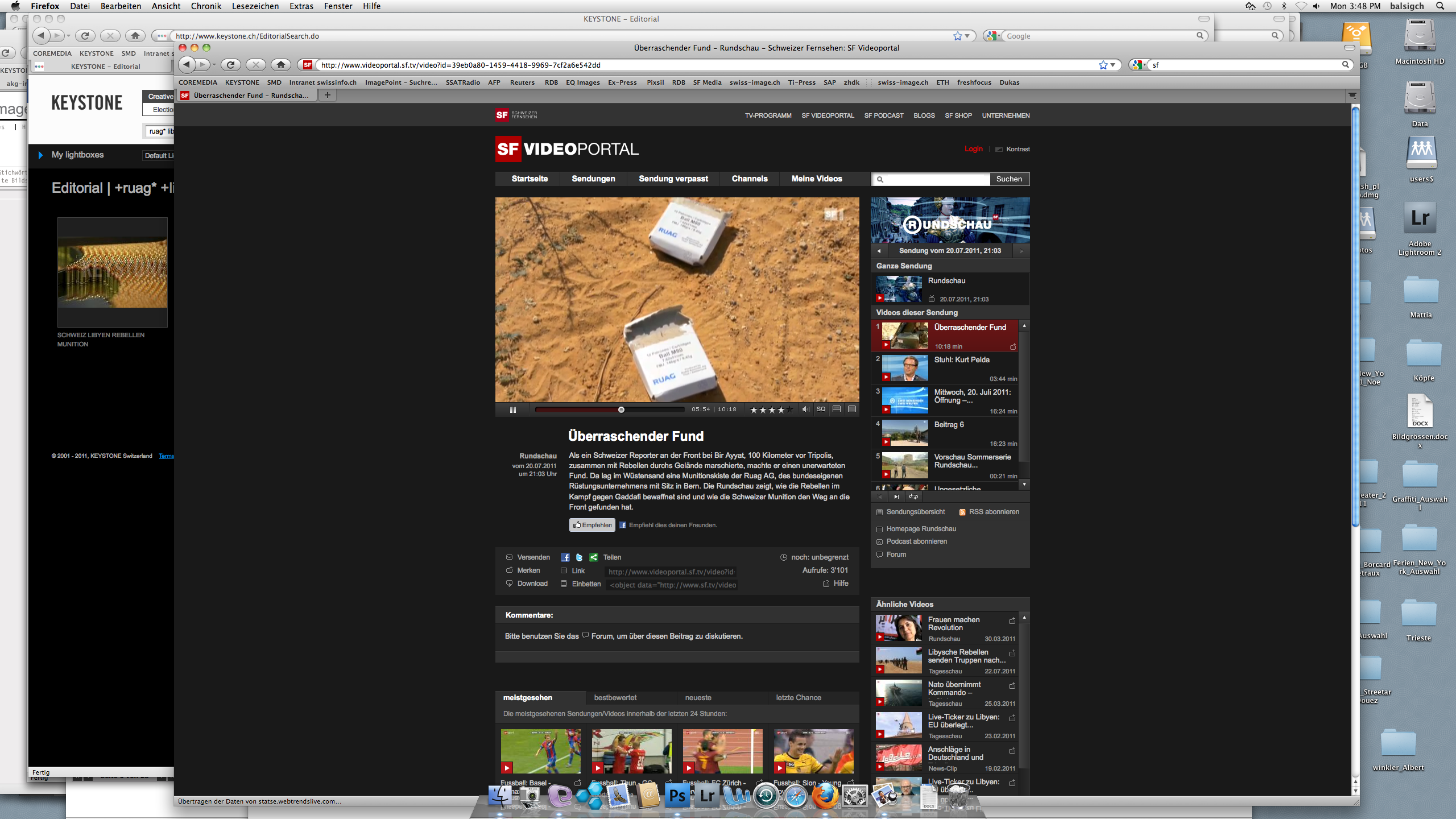Short-lived Swiss arms embargo to Qatar lifted

The government is facing criticism for its decision to allow the resumption of war materiel exports to Qatar.
The delivery of laser targeting devices worth a total of SFr737,200 ($793,000) was suspended last summer after the Middle Eastern state violated an arms proliferation ban. Swiss-produced munitions were found in the hands of rebels in Libya.
The Switzerland without an Army group said the decision by the State Secretariat for Economic Affairs (Seco) was ludicrous.
“It is scandalous to sell arms to Qatar. Earlier this year its armed forces, together with the armies of Saudi Arabia and the United Arab Emirates, invaded Bahrain to suppress a peaceful pro-democracy movement,” a statement said.
The pacifist group argues that Switzerland is sending the wrong signal if it tolerates a violation of Swiss laws and treaties.
“Switzerland obviously does not mind if it gets walked over as long as the arms industry can make a profit.”
Tip of iceberg
The case of Qatar is merely the tip of the iceberg, according to the group. “Seco as a rule does not check whether the countries adhere to the non-proliferation provisions.”
The group refers to a case in 2005 when the United Arab Emirates illegally sent tank howitzers purchased from Switzerland to Morocco.
They call for an outright export ban of war materiel to prevent cases where Swiss weapons are used in conflict regions and in committing human rights violations.
However, Swiss voters in 2009 clearly rejected an initiative aimed at outlawing arms exports.
Qatar is a not a major client of Switzerland’s arms manufacturing industry. This year two permits for weapons accessories to the tune of SFr737,200 were granted to the country.
Apology
Seco said the Qatari authorities had apologised for the violation of the regulations outlawing war materiel being passed onto third countries. The delivery of Swiss munitions was the result of a “mistake in military logistics”, it was assured.
“We consider the explanation to be credible,” Seco spokeswoman Marie Avet told Swiss public radio.
“At the same time they pledged to adhere to the non-proliferation rules. Therefore we are willing to turn the page,” she said.
The decision to lift the export ban applies for the remaining slice – worth SFr90,000 – of an order of laser targeting devices as well as new requests.
It is not clear when the deliveries will resume.
However, the delivery of Pilatus PC-21 aircraft was not affected by the temporary embargo. The Swiss government last April gave the green light for the export of 12 single-turboprop trainers produced by Pilatus Aircraft, Switzerland’s main producer of airplanes.
War materials cannot be exported to countries involved in an internal or international armed conflict, or those systematically and seriously violating human rights.
No sales are allowed to developing states that also receive development assistance or if there is a strong risk that weapons will be used against civilians or sold to another destination.
The pacifist Switzerland without an Army group feels that these restrictions are inadequate and do not prevent weapons that are manufactured in Switzerland from being used in countries at war.
The government fought against a 2009 initiative to ban all weapons exports. It argued that Swiss technical innovation was at stake in addition to the industry’s 5,100 jobs.
In 2010 Switzerland exported arms worth a record SFr641 million to 69 countries.
Germany tops the list of Swiss arms imports ahead of Saudi Arabia.
Swiss weapons companies in 2009 delivered munitions to Qatar valued at SFr1.85 million, according to official figures.
In 2010, Swiss companies sold about SFr500,000 of light weapons to the country.
Qatar represents only a small part of Swiss military materiel exports.

In compliance with the JTI standards
More: SWI swissinfo.ch certified by the Journalism Trust Initiative













You can find an overview of ongoing debates with our journalists here . Please join us!
If you want to start a conversation about a topic raised in this article or want to report factual errors, email us at english@swissinfo.ch.